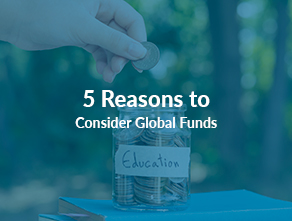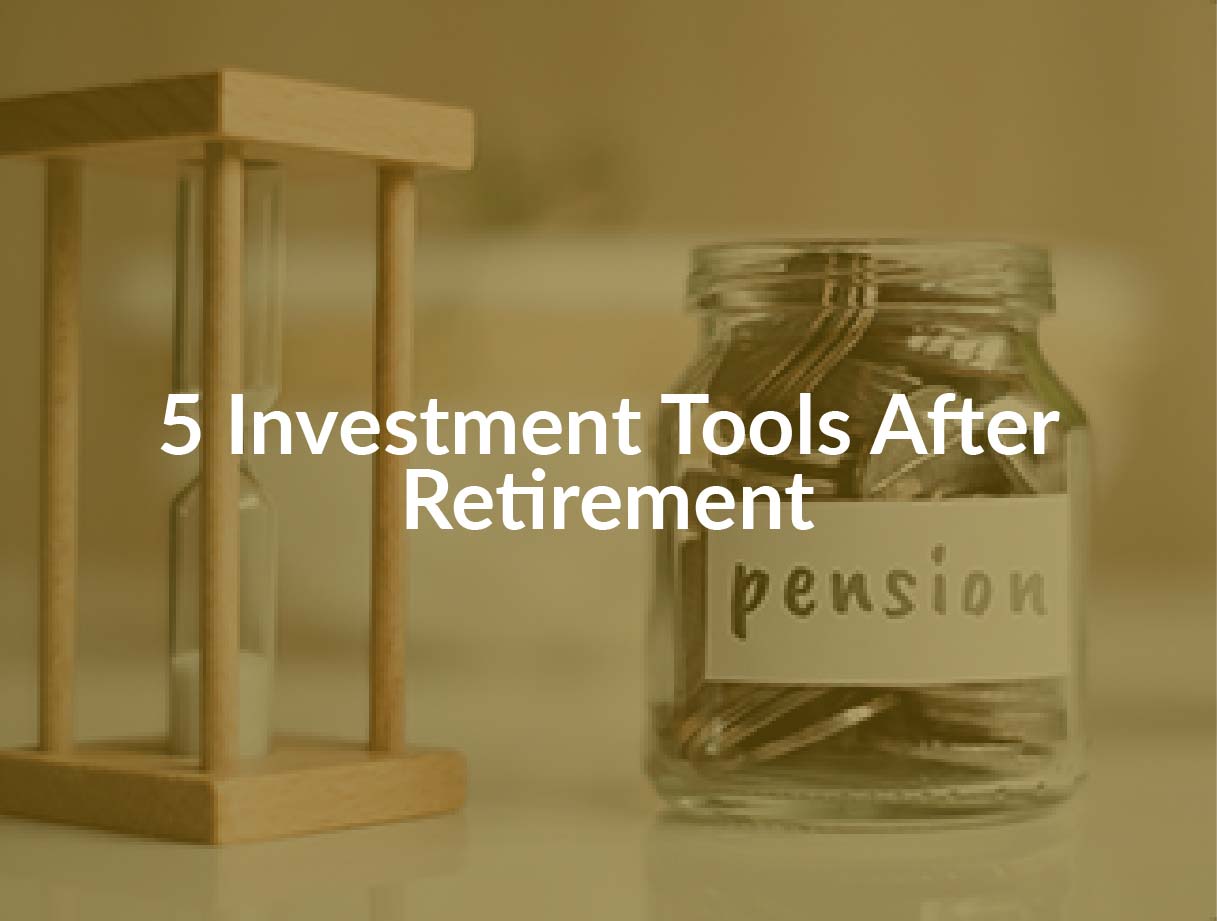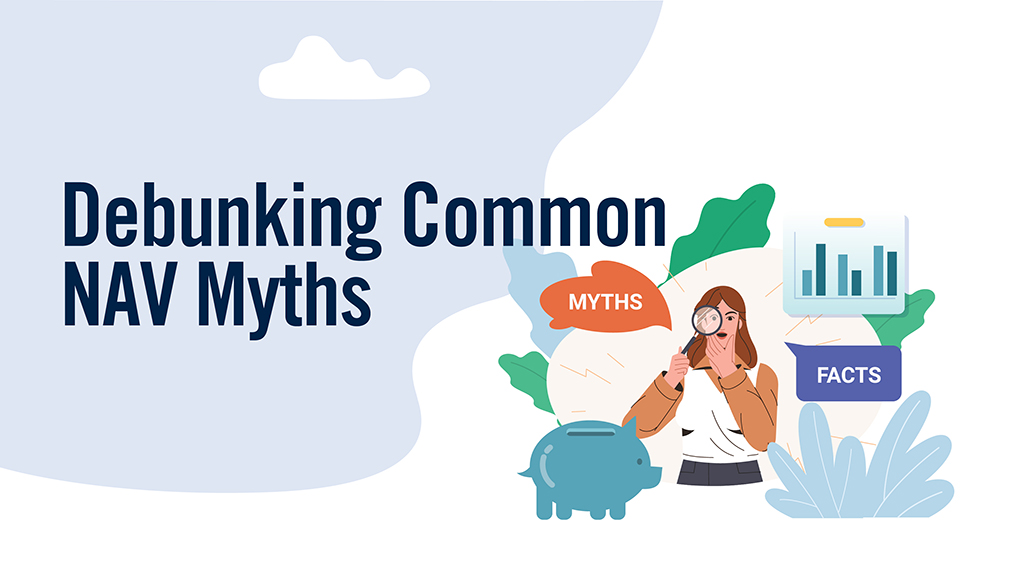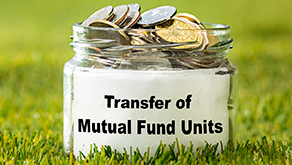SAVE & INVEST IN TOMORROW
Save and invest for your secure future
4 reasons to start investing today
If you didn’t start investing when you earned your first salary, the best time to start could be now. If you’re still unsure about the benefits of investment planning, here are four factors that might help change your mind:

May 2023 . 3
Getting to Know Debt Funds
The ideal investment portfolio must balance risk and reward, with a mix of investment tools chosen according to the individual’s objectives, time horizon and risk appetite.

Apr 2023 . 3
Everything You Need to Know About SIPs
As a young investor with dreams and aspirations, this is the time of your life! You’ve probably got so many personal goals to achieve, whether it’s a new house, a new car or a bucket list vacation. For each of those dreams, you must have a plan beyond just savings – and Systematic Investment Plans (SIPs) are one of the best ways to get there.

Mar 2023 . 5
8 Things to Remember When You’re Saving
Adhering to your financial plans is essential for financial security. If most of your expenses are unplanned, you may end up overspending. This could trigger a short-term crisis, as you run short of money to pay your bills. These crises hinder your progress towards your financial goals. Without a proper framework to manage cash flow, you may become susceptible to an endless cycle of credit card debt. You might even run out of money to pay insurance premiums, leaving you vulnerable in the face of life’s uncertainties.

Nov 2022 . 5
Love Travelling? Here's How You Can Create a Travel Fund
If you’ve always wanted to see the world, don’t let your finances hold you back. Start building a travel fund so you can backpack across Europe, enjoy an overwater villa in the Maldives, skydive in Dubai and more. Sound financial planning will make sure you have the money to enjoy your trips, and that you don’t have to worry about your finances when you’re back home.

Jul 2022 . 4
How Mutual Funds Can Help Fund Your Dream Vacation
That Goa trip with your friends, that Leh-Ladakh bike trip, the Northern Lights you’ve been longing to see – they’re all within your reach. All you need to do is start your financial planning today so you have money to achieve them. The first step towards your dream vacation could be investing in mutual funds.
Mutual funds are essentially an investment tool that pools money from a large number of investors and invests that corpus into different asset classes, depending on the type of the scheme – global equity shares, Indian equities, blue-chip companies, debt, bonds, gold, commodities etc. The primary benefit of mutual funds is that it gives investors the benefit of fund managers’ expertise, and is thus especially valuable for novice investors.

May 2023 . 5
4 Steps to Save Money for Travel in Your 20s
If your goal planning includes travelling while you are still young, it’s important to do some proper financial planning. Your motto should be ‘earn, save and invest till you reach your goal of travelling’.
Here are four essential steps to help you achieve your travel goals:
Here are four essential steps to help you achieve your travel goals:

Apr 2023 . 3
Should you take a loan to finance higher studies?
Higher education can ignite your career, help you start a venture of your own and enhance your knowledge. However, to attend the best institutions for higher studies, you need a substantial amount of money. Given the rising cost of education, you might wonder, should you take a loan to finance your higher studies?

Mar 2023 . 5
4 Ways To Save On Taxes With Mutual Funds
Mutual fund schemes are quite popular among investors because they offer professional fund management, a diversified portfolio and the potential for earning better risk-adjusted return to beat inflation. The icing on the cake is that mutual fund schemes can also help you save taxes.
Here are 4 ways you can save taxes with mutual funds:
Here are 4 ways you can save taxes with mutual funds:

Feb 2023 . 3
8 Life Events You Should Prepare For
Life is a rollercoaster, and most big life events have significant financial implications – so it’s important to be prepared. Maybe you can’t foresee everything, but these are the eight big life events you should definitely consider when making a financial plan.

Dec 2022 . 4
5 Reasons to Consider Global Funds
When it comes to investment, diversification is important. The more diversified your portfolio, the more scope you have to earn healthy returns and mitigate risk. Global mutual fund schemes are one of the most effective ways to diversify your portfolio.
Let’s take a look at some of the major benefits of global or international mutual fund schemes for investors:

Sep 2022 . 4
Things to consider before taking a home loan
The first thing you'll probably ask yourself when you're ready to buy a house is, "How much can I afford?" To answer this question, you must consider specific financial planning criteria.

Jul 2022 . 5
5 Things You Need to Know About Rolling Returns
Studying the historical returns of a market-linked investment gives you an insight into its past performance. This may help you compare schemes and check its consistency and performance during different market phases. There are several metrics to help you assess historical returns, one of which is rolling returns. Here’s what you need to know about them:

May 2023 . 4
Why You Should Play a Long Innings with Small-Cap Funds
AMFI (Association of Mutual Funds of India) divides listed companies into three categories based on their market capitalisation[1].

Apr 2023 . 7
SIP vs STP vs SWP - Know the Difference
As you explore investment plans, you must have come across a host of abbreviations like SIP, SWP and STP. But what are these different strategies?

Mar 2023 . 6
How to Benefit from Hybrid Equity Funds
Still wondering whether you should invest in Equity or in Debt? With a hybrid fund, you can invest in both!

Jan 2023 . 5
Why Mutual Fund SIDs are Essential Reading
You would have seen this statement a thousand times, in every mutual fund investment advertisement – “Mutual fund investments are subject to market risks, read all scheme-related documents carefully.” The objective is to help investors make informed decisions about each scheme. But what are these “scheme-related documents”?

Nov 2022 . 4
Why Is It Important To Know Your Rights & Responsibilities As An Investor?
Whether you invest in equity stocks, mutual funds, real estate, or insurance plans, every investment is governed by specific rules and regulations set up by authorised governing bodies.

Sep 2022 . 4
The Advantages of Large-cap Funds
Listed companies in India are classified by SEBI into three categories, based on their full market capitalisation. The top 100 companies by market capitalisation are “Large-cap”; those ranked 101-250 are “Mid-cap”; and those outside the top 250 are “Small-cap”

Jul 2022 . 4
5 Ways to Up Your Investment Game
Here are five steps you can follow while investing to optimise returns at adjusted risk levels.

May 2023 . 3
Should You Save or Borrow to Finance a Big Purchase? Here’s How to Decide
Your dream home, luxury cars, overseas vacations require high capital. Planned expenses are often met by liquidating investments.

Apr 2023 . 8
5 Investment Tools After Retirement
As you enter retired life, it’s important to continue investment planning. Your goal planning will involve accumulating savings to manage expenses and help you pursue your interests in retirement. Many people look at investments for retirement planning expecting high returns in the shortest time. However, in reality, high-return low-risk investment options are rare. Most often, risk and returns are directly proportional. Hence, during investment planning, it’s important to match your risk appetite with the risk of the investment product you select.
There are two broad types of investment options available to you – financial and non-financial assets. Financial assets can be further categorised into market-linked products such as mutual funds, and fixed-income products such as Public Provident Fund and bank fixed deposits. Non-financial assets may include gold or real estate.
Here are some of the investment options that will help you achieve your personal finance goals as you enter retirement:

Mar 2023 . 3
Debunking Common NAV Myths
NFOs are better than existing funds as their NAV’s are lower?

Jan 2023 . 8
How to Retire in Comfort?
Everyone dreams of retiring rich – but if you are not already sitting pretty on a sizeable estate, achieving it can take some smart planning, and commitment.

Nov 2022 . 3
Are You On Track With Your Retirement Goals?
You should be prepared for your retirement, both mentally and financially. Failure to prepare could cause you money worries in retirement, so it’s important to plan carefully.

Sep 2022 . 3
Why Should You Have a Global Fund in Your Portfolio?
In today’s globalised world, we use the products of countless multinational companies without even realising it. At the same time, globalisation also gives you opportunities to invest in these companies and include them in your financial portfolio - and global funds are the way to do it.

Jul 2022 . 3
7 Tips for Redefining Your Short-Term & Long-Term Financial Goals
Financial security is a lifelong journey, punctuated by several short-term and long-term objectives that change with time. While short-term milestones are essential for keeping you motivated, long-term goals have a lasting impact on your overall financial health.
As important as it is to define financial goals, it is also essential to re-evaluate them periodically to ensure sustainable financial security. But how do you redefine your financial goals? Here are 7 tips that can help:

May 2023 . 4
Everything You Need to Know About Transferring Mutual Fund Units
Most of us engage in investment planning with mutual funds to create a better life for our families. But as you strive to meet your financial planning needs, you must ensure that your investments will be transferred to your loved ones if something were to happen to you.

Apr 2023 . 3
5 Factors to Help You Choose Debt Fund
With their relatively lower volatility compared to equity asset class and regular income-generating potential, debt mutual funds are ideal for conservative investors. These schemes invest your money in securities like treasury bills, corporate bonds, commercial papers, government securities and other money market instruments which have the potential to deliver comparatively stable returns.
But with so many options to choose from, how do you pick the debt funds? Focus on these 7 fundamentals among other factors:

Mar 2023 . 3
7 Short-Term Plans to Fund Your Next Vacation
According to a recent study, travelling frequently for leisure has a significant positive impact on your happiness and wellbeing1. However, travelling can be expensive and requires effective financial planning and budgeting.
Here are 7 short-term instruments with high liquidity that can help you fund your dream vacation:

Jan 2023 . 4
Building a Mutual Fund Portfolio to Retire in Your 50s
As you approach your 50s, financial and investment planning must become focused activities, to accommodate your current requirements and also prepare you for retired life.

Nov 2022 . 3
10 Retirement Challenges and Their Solutions
Not everything in life goes as planned. The same holds true for retirement planning as well. Here are a few challenges that you may face along the way and suggestions on how you can successfully overcome the situation.

Sep 2022 . 3
Rethinking Your Finances in Your 50s
Turning 50 can be a wonderful landmark in your life and personal finance journey. This is when you are at the peak of your career as well as meeting all your family obligations. However, financial planning remains an important responsibility and depends on the scenario you’re in.

Jul 2022 . 3
Why declutter and consolidate your investment portfolio
Whether it’s your office desk, wardrobe or portfolio, decluttering helps you organize things in a better way. When it comes to our finances, we may have invested in a variety of products through different intermediaries like banks, MFDs, insurance agents and opened multiple bank accounts. Keeping track of everything may become a challenge.
Here are a few benefits of consolidating your portfolio.
Sometimes, simplicity is better. When you keep all or most of your investments in one place, you just need to remember one username and password, and one customer support contact.
You can also save time and paper by reducing the number of individual statements you get, whether electronically or by mail.

May 2023 . 2
How to Allocate your Assets Efficiently after Retirement
Retirement marks a new chapter of your financial journey, as the financial and investment planning goals of a lifetime come to fruition. Yet many retirees still have a nagging fear that they might run out of money, since their steady salary income stops while their expenses endure. There may be concerns over EMIs, loan payments, how to manage household and essential expenses, medical expenses etc.

Apr 2023 . 5
3 Reasons Why You Should Move into Fixed Income and Out of Excessive Equity
Asset rebalancing is a key part of investing. It’s important to review and update your investment portfolio regularly, because your financial goals and financial situation will change with age. In your 60s, your investment horizon and risk tolerance are very different from what they were in your 20s.
This has a significant effect in the case of equities and fixed income investments. Younger investors with a larger investment horizon are usually encouraged to invest more of their portfolio in equity mutual funds / direct equity. The opposite is true for older investors with a smaller horizon, for whom fixed income vehicles like PPF and bonds may be more suitable. Let’s take a look at why this is so:

Mar 2023 . 2
6 Ways to Remain Financially Independent in Retirement
Retirement comes with plenty of free time, and the option to relax and enjoy a life of leisure. But some people also struggle with the boredom and lack of purpose. Moreover, your financial planning doesn’t stop upon retirement. There are newer goal planning considerations in store. You need to pursue the right personal finance and investment planning to protect your retirement corpus from inflation and taxes. You’ll continue to manage expenses such as household expenses, lifestyle expenses, emergency medical expenses etc. You’ll have to maintain adequate life and health insurance to protect your retirement corpus from unforeseen events.

Feb 2023 . 5
Senior Citizen's Savings Scheme
Launched in 2004, Senior Citizens Savings Scheme Account (SCSS) was launched with the primary goal of providing senior citizens in India with a regular income once they reach the age of 60.

Jan 2023 . 3
Should you leave inheritance for kids
Inheritance is a symbol of lineage in all societies. If you have assets to leave to your children, it is best to leave it in a way that minimizes disagreements.

Dec 2022 . 2
How to Fund Your Post-Retirement Recreational Activities
After spending the majority of our adult life in employment, it can be a bit overwhelming to switch to being dependent on passive income. But with strong financial and investment planning, retirement can be a genuinely fulfilling experience. You can reorient your personal finance goals to help you pursue your dreams and passions – travel, a new hobby etc.

Nov 2022 . 4
6 Smart Options for Investment Planning Post-Retirement
Most people prepare for retirement by saving and investing throughout their working life. During retirement, your financial goals and approach to financial planning will undergo a change, as your priorities shift to maintaining your lifestyle and securing your legacy. At the same time, it’s important to continue with your investments even during the retirement phase of life.
Let’s take a look at the six key investment options available to you in retirement:

Sep 2022 . 4
Where to Put Your Retirement Funds
As you approach retirement, you enter a new phase of financial planning, guided by new goals, anxieties and ambitions. The rise in life expectancy has made it even more important to plan well for retirement, so that you have enough money to lead a long, comfortable retired life.

Jul 2022 . 4
PGIM India Asset Management Private Limited
(CIN - U74900MH2008FTC187029)
Toll Free Number: 1800 266 7446
Email: care@pgimindia.co.in
This is an Investor Education and Awareness Initiative by PGIM India Mutual Fund.
All the Mutual Fund investors have to go through a one-time KYC (Know Your Customers) process. Investor should deal only with the Registered Mutual Funds (RMF). For more info on KYC, RMF and procedure to lodge/redress any complaints, visit https://www.pgimindia.com/mutual-funds/ieid.
MUTUAL FUND INVESTMENTS ARE SUBJECT TO MARKET RISKS, READ ALL SCHEME RELATED DOCUMENTS CAREFULLY. Read more
All the Mutual Fund investors have to go through a one-time KYC (Know Your Customers) process. Investor should deal only with the Registered Mutual Funds (RMF). For more info on KYC, RMF and procedure to lodge/redress any complaints, visit https://www.pgimindia.com/mutual-funds/ieid.
MUTUAL FUND INVESTMENTS ARE SUBJECT TO MARKET RISKS, READ ALL SCHEME RELATED DOCUMENTS CAREFULLY. Read more
The information contained herein is provided by PGIM India Asset Management Private Limited (the AMC)
on the basis of publicly available information, internally developed data and other third-party
sources believed to be reliable. However, the AMC cannot guarantee the accuracy of such information,
assure its completeness, or warrant such information will not be changed. The information contained
herein is current as of the date of issuance* (or such earlier date as referenced herein) and is
subject to change without notice. The AMC has no obligation to update any or all of such
information; nor does the AMC make any express or implied warranties or representations
as to its completeness or accuracy. There can be no assurance that any forecast made
herein will be actually realized. These materials do not take into account individual
investor's objectives, needs or circumstances or the suitability of any securities,
financial instruments or investment strategies described herein for particular investor. Hence,
each investor is advised to consult his or her own professional investment / tax advisor / consultant for advice in this regard.
The information contained herein is provided on the basis of and subject to the explanations, caveats and warnings set out elsewhere herein.
The views of the Fund Manager should not be construed as an advice and investors must make their own investment decisions regarding investment/ disinvestment in securities market and/or suitability of
the fund based on their specific investment objectives and financial positions and using such independent advisors as they believe necessary.




